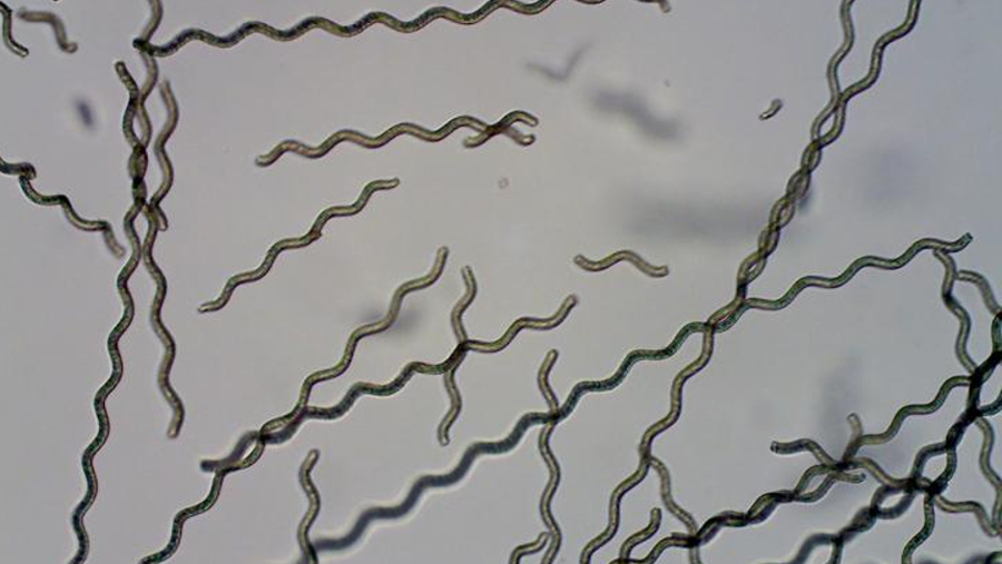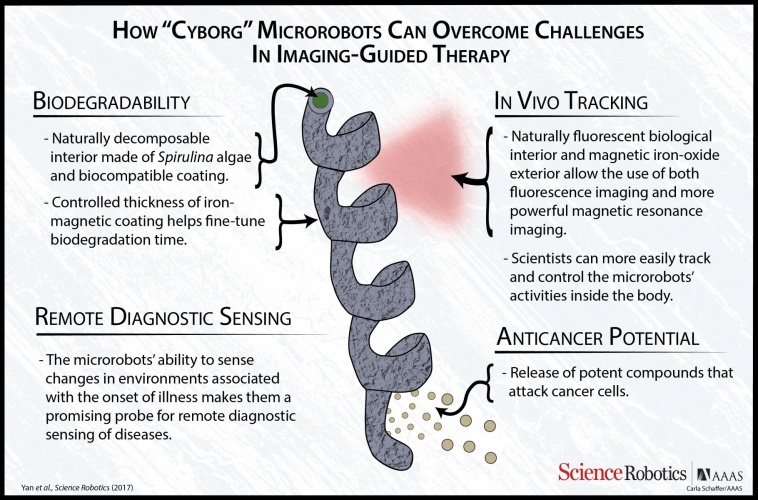Biodegradable nanobots could help treat cancer
A team of scientists have created a new generation of tiny remote-controlled nanobots which could eventually allow doctors to diagnose disease and fight cancer from within the human body.


The team led by Prof Li Zhang from the Chinese University of Hong Kong, including Prof Kostas Kostarelos from Manchester University, have created the bots from a biodegradable material called spirulina algae.
A paper by the team, published in Science Robotics, hails the bots’ biodegradability as a new concept, in which an iron magnetic coating help to fine-tune the rate which they degrade.
In tests, a swarm of nanobots measuring a few millionths of a metre long were guided magnetically to sites in the stomach of rats.
They could be tracked in tissue close to the skin's surface by imaging the algae's natural luminescence, and in hard-to-reach deeper tissue by magnetic resonance imaging (MRI).
Scientists suggest their findings could lead to a way to deliver drugs to parts of the body that are otherwise difficult to treat. The nanobots could also sense chemical changes linked to the onset of illness within parts of the body, which makes them potentially useful as probes for remote diagnosis.
Register now to continue reading
Thanks for visiting The Engineer. You’ve now reached your monthly limit of news stories. Register for free to unlock unlimited access to all of our news coverage, as well as premium content including opinion, in-depth features and special reports.
Benefits of registering
-
In-depth insights and coverage of key emerging trends
-
Unrestricted access to special reports throughout the year
-
Daily technology news delivered straight to your inbox










Hornsea 4 wind farm axed by Ørsted
Sounds like a job for Greta British Energy. IF it actually had staff. Or a business. Or manufacturing capabilities. Or access to the manifest promised...